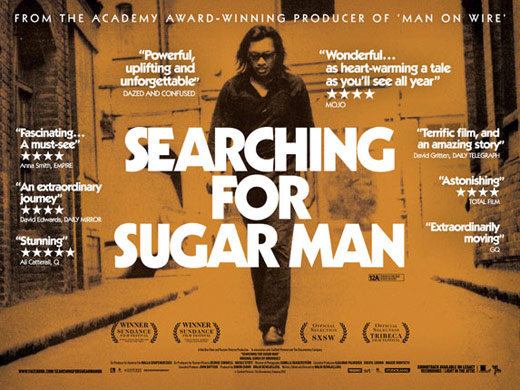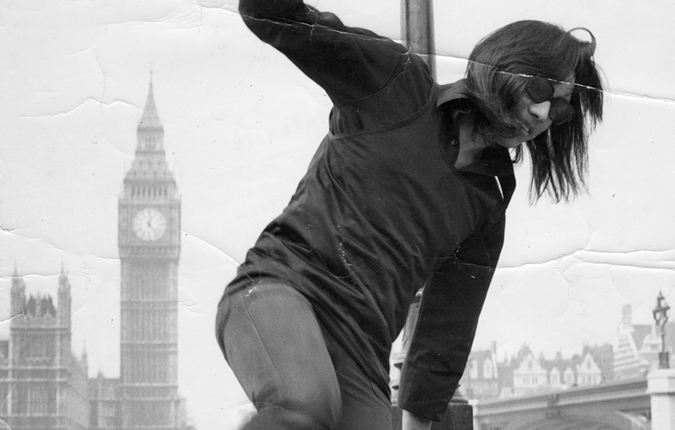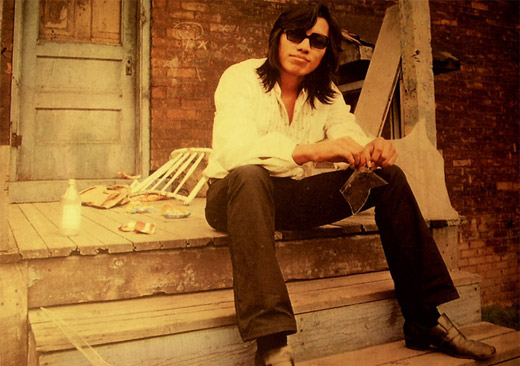 Searching for Sugar Man
Searching for Sugar Man
Directed by Malik Bendjelloul
UK/Sweden, 2012
One problem the modern narrative documentary faces in the time of instantaneous online information is that the various twists and turns they present may well already be known to a viewer beforehand, them having looked into basic details about the documentary’s subject prior to watching. Searching for Sugar Man has a prominent role for much earlier days of the internet in its story, but the tool now presents a problem for director Malik Bendjelloul. The film concerns exploring what happened to Rodriguez, a Detroit musician whose records tanked in America and whose profile was miniscule. In South Africa, however, his first album is viewed as having fuelled the underground music revolution that helped influence the country’s resistance to apartheid. Rodriguez reportedly sold more records there than Elvis Presley and The Rolling Stones, but no one knew anything about the man, other than that he had killed himself in one of several mythologised ways.
Bendjelloul’s film concerns the search for how Rodriguez really died and any other concrete information about the man, a quest that reveals some quite extraordinary revelations. The internet issue is that, somewhat ironically, any online search for the “unknown” musician of the film’s focus can now immediately reveal entirely too much and spoil some of the surprises Searching for Sugar Man has to offer. The remainder of this review will delve into necessary spoiler territory regarding some problems with the documentary, which is still a generally good film that is well worth seeing. Like the music of Rodriguez, it is a work best discovered and viewed first-hand without the prior knowledge most pieces about it and search engines unfortunately give away.
The most compelling aspect of the film is the mystery of Rodriguez’s origins and his disappearance from the music scene, as well as the insight into a unique talent when it is revealed that Rodriguez is actually alive and well, living a humble life of manual labour. Continuing to live in the same poverty-stricken area he has always dwelled in, Rodriguez has an almost saintly ambivalent approach to money. Even when he tours South Africa after being found by enthusiastic music fans, he chooses to give a great deal of his earnings to family and charity. In almost conflicting contrast to Rodriguez’s approach, Bendjelloul seems overly concerned with money. Once he is found alive, the film’s structure is frequently concerned with what Rodriguez is owed, and his unclaimed fame; the subject himself is often pressed about the issue by the filmmakers. Rodriguez’s humbleness and selfless priorities offer a deeply moving insight, but the director’s enthusiasm for the money the musician doesn’t even want inadvertently loosens the story’s focus.
Additionally, some more exploration as to why the music didn’t sell in its domestic market proves desirable. The fertile music scene of Detroit at the time – The Stooges, Parliament-Funkadelic, MC5 – is completely ignored, while the influences of successful, similar folk-rock acts like Bob Dylan and Van Morrison also don’t get much attention. There is a lot of context for the successful South African part of Rodriguez’s music career, but more of the American side beyond repeatedly regaling sales figures would have been vital and appreciated.
Josh Slater-Williams





